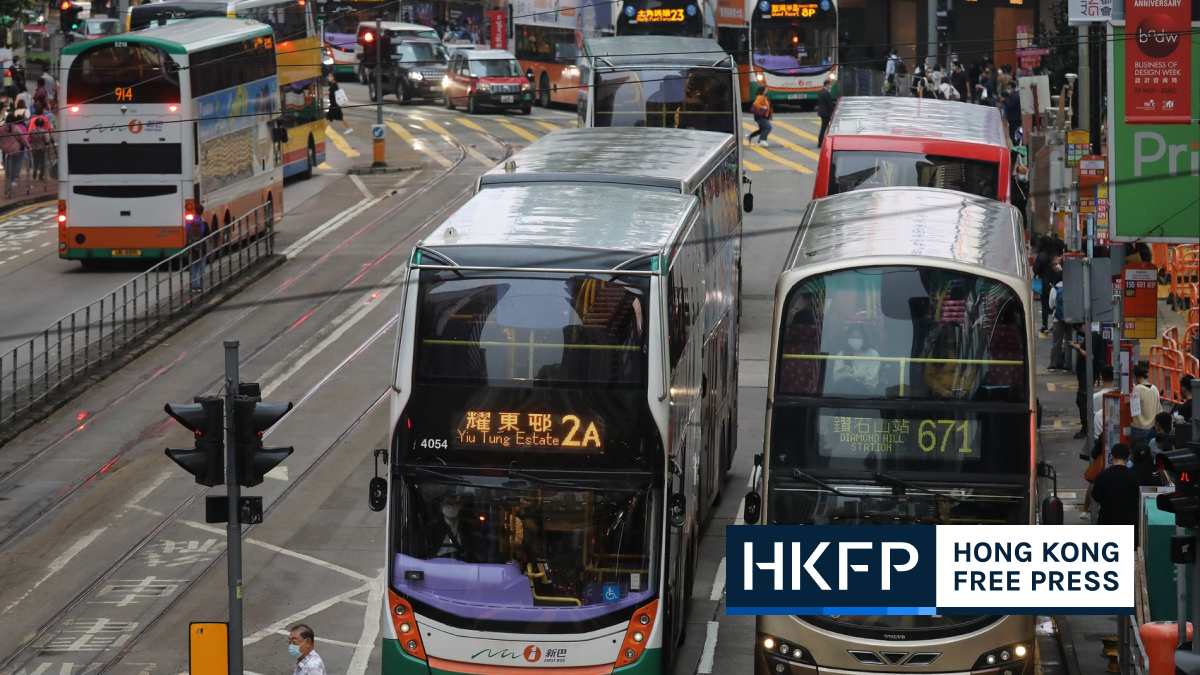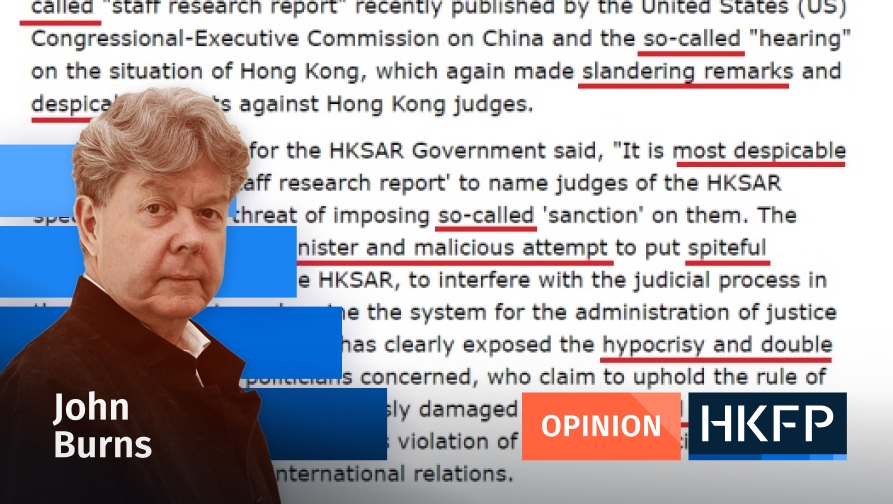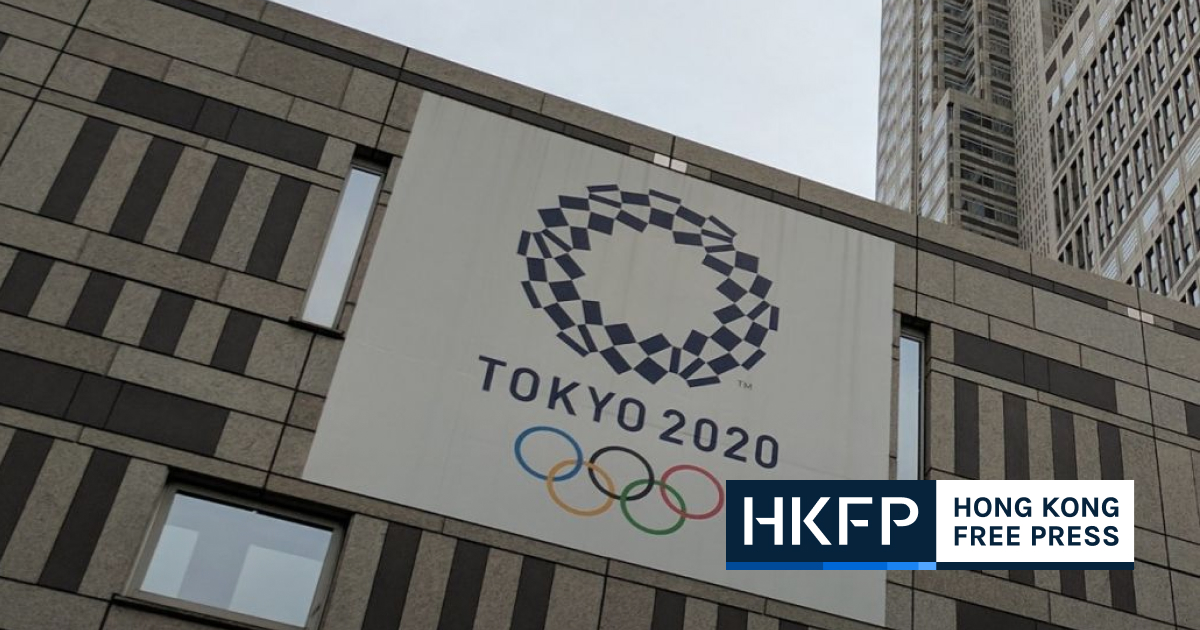Nineteen firms from mainland China and the US have signed an agreement to set up offices or expand in Hong Kong as part of a government drive to draw international innovation and technology (I&T) companies to the city.
Chief Executive John Lee said during a signing ceremony on Wednesday that the firms, some of which already had an existing presence in Hong Kong, would thrive in the city.
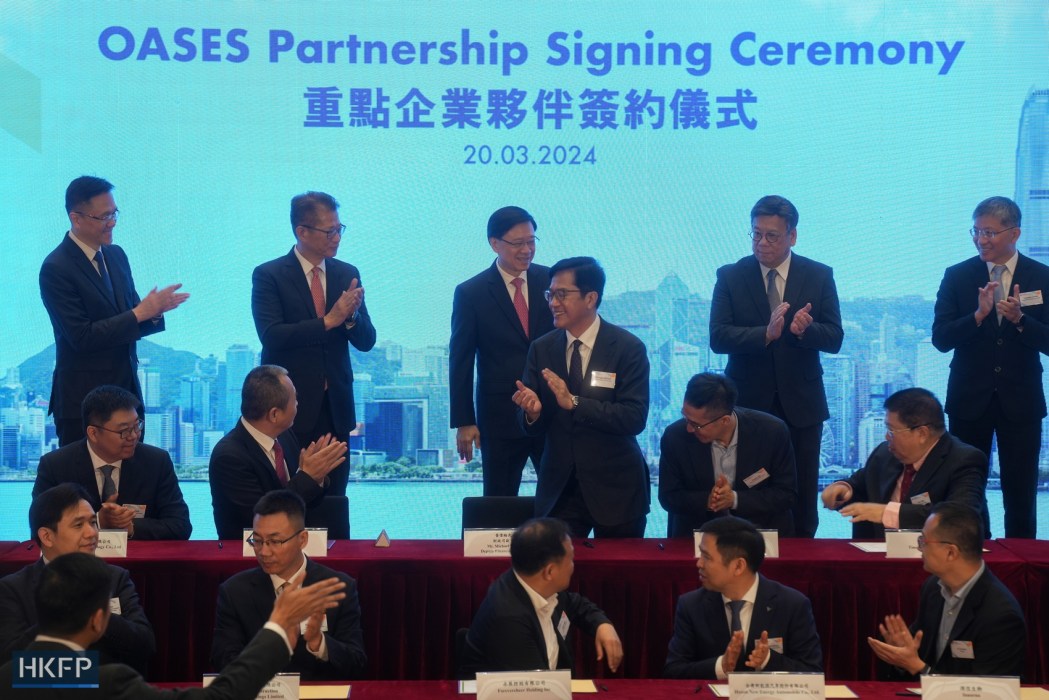
The deal would bring more than HK$40 billion in investment to Hong Kong’s economy, while creating some 13,000 jobs over the next few years, Lee added.
A total of 25 companies were present at the ceremony, including six that were absent from a ceremony last October, when the first batch of 30 “strategic enterprises” signed agreements. Of the 19 new companies, six are from the US, while the others are from the mainland.
“Hong Kong serves as a ‘super connector’ and ‘super value-adder’ for international companies eager to enter the Chinese market, and for mainland Chinese companies willing to expand their global presence,” Lee said.

He also touted the city’s “strategic location, world-class infrastructure, robust legal system, and long tradition of the rule of law.”
The signing came a day after Hong Kong’s opposition-free legislature unanimously passed new security legislation, targeting treason, sabotage, theft of state secrets and espionage, insurrection, and external interference.
Officials hailed the completion of a “historic mission,” saying the law was needed to plug the “loopholes” in national security legislation imposed on the city by Beijing in June 2020, and would allow Hong Kong to focus on bolstering a sluggish economy.
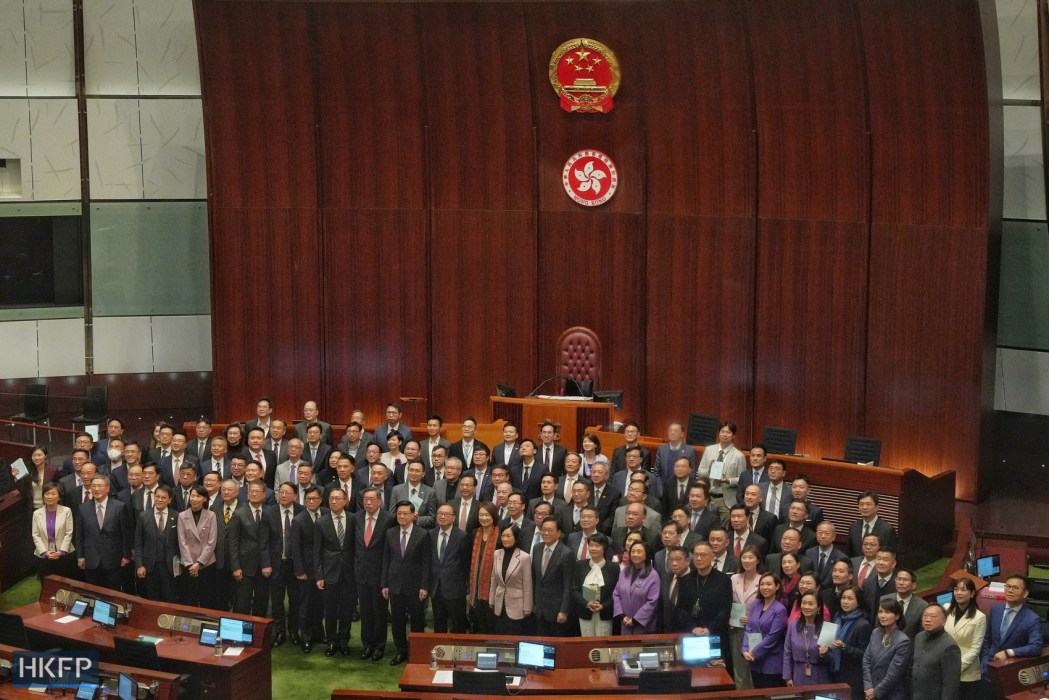
Western governments and NGOs, however, warned that the passage of the law would have a negative impact on rights and freedoms in the city, which has seen political opposition and civil society shrink in the wake of Beijing’s legislation.
Ahead of the new law’s passage, Hong Kong’s international business community expressed concerns over what it may mean for their operations in the city.
Strategic enterprises
In his 2022 Policy Address, Lee announced that authorities would attract capital and enterprises to Hong Kong by setting up the Office for for Attracting Strategic Enterprises (OASES) and the Mutual Invest Fund to invest in potential companies.
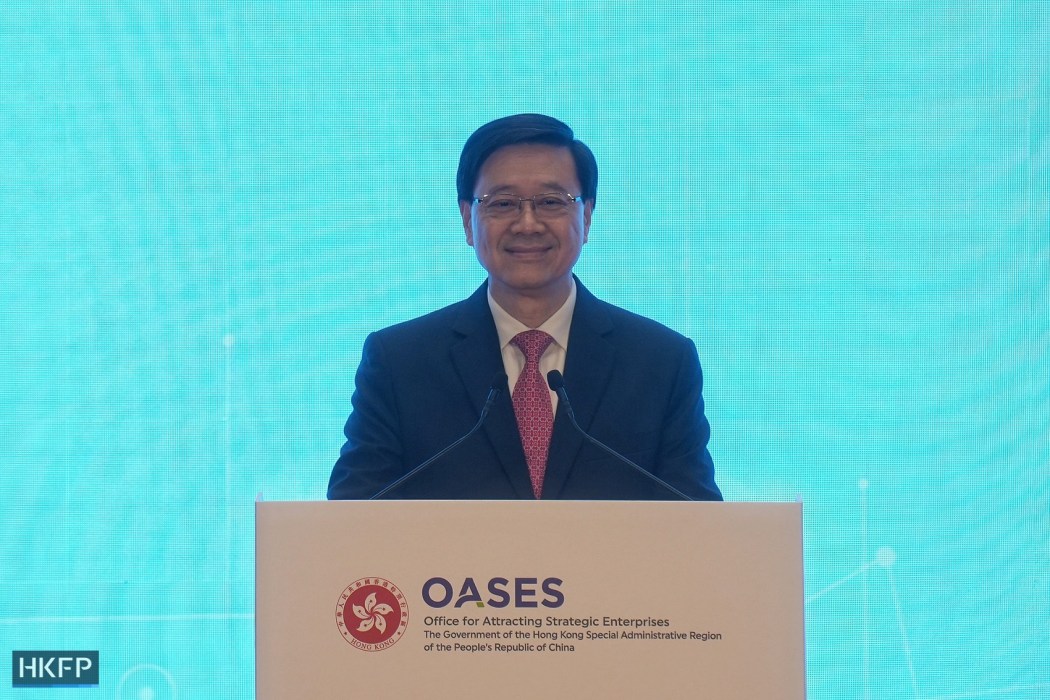
Last October, the office signed agreements with the first batch of 30 “strategic enterprises” which included companies listed in Hong Kong years before the agreement was signed, including tech company Lenovo.
Present at Wednesday’s ceremony were, among others, medical technology firm BioMap, incorporated in Hong Kong in 2020; the China Resources Research Institute of Science and Technology, established in 2019; and China’s largest humanoid robot manufacturer UBTech Robotics, which was listed in Hong Kong last December.
US logistics payment platform PayCargo was one of the new joiners. As the Blackstone-backed firm announced its foray into the Asian market earlier this month, Commercial Director of Asia Morgan Law said PayCargo would capitalise on the city’s status as the largest air cargo hub in the world.

Asked whether he was concerned that Hong Kong’s homegrown national security legislation would impact the firm’s operations, Law said on Wednesday that he believed the law would create a stable business environment.
Finance chief Paul Chan said on Wednesday that OASES would continue to reach out to more than 300 strategic enterprises from around the world.
“The One Country, Two Systems arrangement is here for the long run. It guarantees openness and global connectivity, the rule of law, the free flow of capital, data, talent, as well as seamless alignment with best international business practices,” Chan said.
Support HKFP | Policies & Ethics | Error/typo? | Contact Us | Newsletter | Transparency & Annual Report | Apps
Help safeguard press freedom & keep HKFP free for all readers by supporting our team

LATEST FROM HKFP
HKFP has an impartial stance, transparent funding, and balanced coverage guided by an Ethics Code and Corrections Policy.
Support press freedom & help us surpass 1,000 monthly Patrons: 100% independent, governed by an ethics code & not-for-profit.




